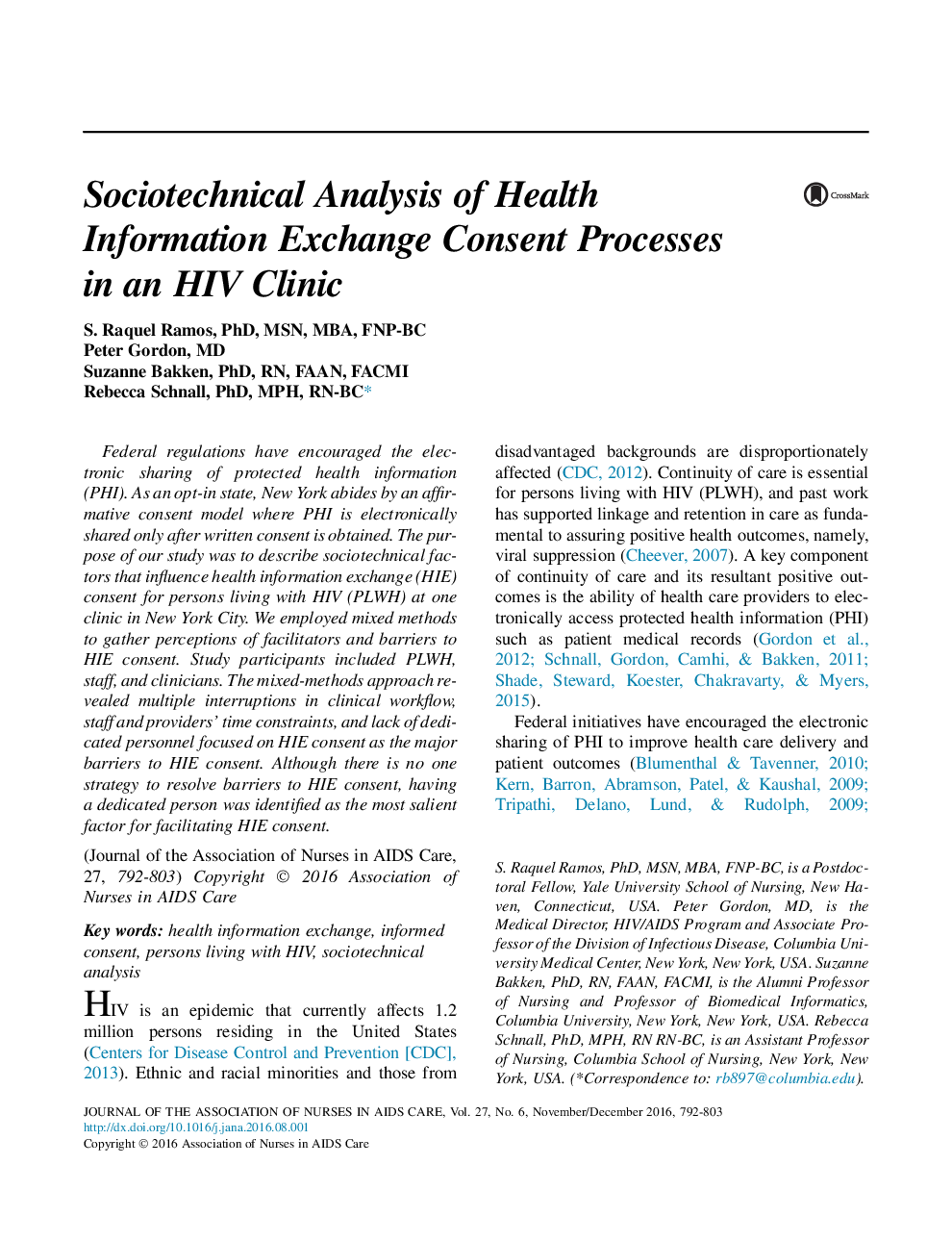| Article ID | Journal | Published Year | Pages | File Type |
|---|---|---|---|---|
| 5569177 | Journal of the Association of Nurses in AIDS Care | 2016 | 12 Pages |
Federal regulations have encouraged the electronic sharing of protected health information (PHI). As an opt-in state, New York abides by an affirmative consent model where PHI is electronically shared only after written consent is obtained. The purpose of our study was to describe sociotechnical factors that influence health information exchange (HIE) consent for persons living with HIV (PLWH) at one clinic in New York City. We employed mixed methods to gather perceptions of facilitators and barriers to HIE consent. Study participants included PLWH, staff, and clinicians. The mixed-methods approach revealed multiple interruptions in clinical workflow, staff and providers' time constraints, and lack of dedicated personnel focused on HIE consent as the major barriers to HIE consent. Although there is no one strategy to resolve barriers to HIE consent, having a dedicated person was identified as the most salient factor for facilitating HIE consent.
